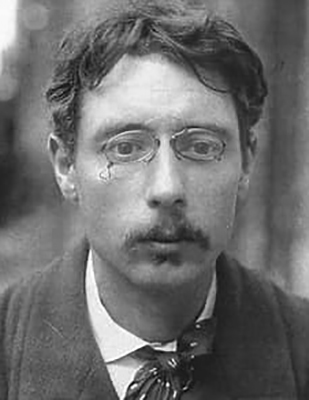PIERRE BONNARD (1867-1947)
 A French painter and printmaker, Pierre Bonnard was a post-impressionist, and founding member of the avant-garde group Les Nabis. Bonnard lived an uneventful childhood, and entered into the University of Paris in 1896 to study law. One year later, he enrolled in the Academie Julian, a liberal Parisian art school, where he met Paul Serusier, Mauris Denis, Henri Ibels, and Paul Ransom. The five friends, all of similar artistic inclination, joined together to form Les Nabis, a group of avant-garde post-impressionist painters.
A French painter and printmaker, Pierre Bonnard was a post-impressionist, and founding member of the avant-garde group Les Nabis. Bonnard lived an uneventful childhood, and entered into the University of Paris in 1896 to study law. One year later, he enrolled in the Academie Julian, a liberal Parisian art school, where he met Paul Serusier, Mauris Denis, Henri Ibels, and Paul Ransom. The five friends, all of similar artistic inclination, joined together to form Les Nabis, a group of avant-garde post-impressionist painters.
The first exhibition of his works was in 1891, at the Salon des Independants, and the first exhibition of the work of the Nabis in the same year. In addition to paintings, Bonnard was a prolific artist, producing furniture and textile deigns, puppets for puppet shows, painted screens, stage sets, and illustrated books. After 1900, he began spending more time in the countryside between Normandy and Paris, producing a great number of landscapes. Beginning in 1906, Bonnard began his annual one-man exhibitions at an art firm that had exclusive rights to his works, which were traditionally impressionistic, albeit with an enhance color palette.
Before the beginning of World War I, Bonnard traveled extensively throughout Europe and North Africa, although his paintings were not indicative of his experiences there. The same went for the trials and tribulations of World War I, of which there is no reference in his paintings. Bonnard continued to create major exhibitions of his work, traveling to the United States, commissioned to paint the French pavilion at the Exposition Universeilles in Paris in 1937. His last painting, The Almond Tree in Flower, was painted a week before his death in 1947. The Museum of Modern Art, in New York, exhibited a posthumous exhibition of his work in 1948, although they had been planning the work since before the artist’s death the year before, as a celebration of his 80th birthday.
(wikiart.org)
